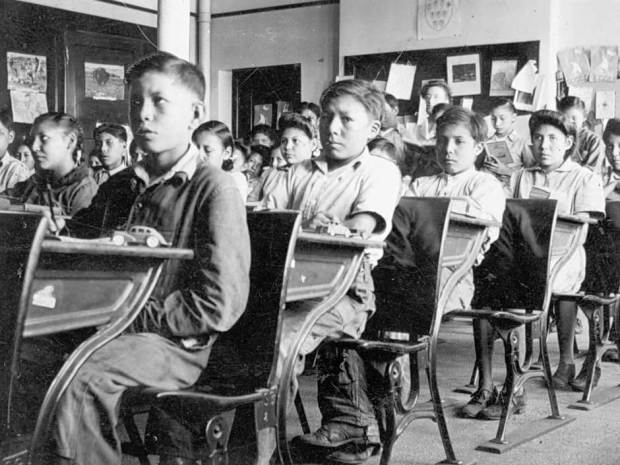To Kill the Indian in the Child: The Apology
“At 3:00 p.m. exactly, Prime Minister Stephen Harper appeared on the screen and the crowd fell silent” (p. 165).
From the early 1830s to 1996, thousands of First Nation, Inuit, and Metis children were forced to attend residential schools in an attempt to aggressively assimilate them into the dominant culture. During Stephen Harper’s speech, which proves to me a monumental moment in Canadian history, he says:
“I stand before you – in this chamber so central to our life as a country to apologize to Aboriginal peoples for Canada’s role in the Indian Residential Schools system” (p. 167).

Despite the importance of this moment between the Canadian government and the affected Aboriginal peoples, it was not universally received as a positive apology. It is always difficult when individuals of a marginalized group continue to feel as though the apology and the means in place of rectifying the injustice are insufficient. There continue to be individuals who take the “too little too late” response, accepting that an effort was made but refusing to recognize it as sufficient.
My questions is: What apology would be sufficient? Should they receive a massive monetary compensation for the disgusting and inhuman actions that took place within the residential schools? Should there be a First Nations, Inuit, and Metis subject introduced in schools to educate students on what really happened? What can we do as a country to make everyone feel proud of being a Canadian?
These will never be easy questions to answer. Hundreds of years from now, when there are no living victims of the residential school system, there will still be hard feelings because it still happened, affecting the ancestors of many families. So where does that leave us? Is there anything we can do? Perhaps not to the standards that will be universally accepted. However, with each action of rectifying the situation, more and more people are learning to start anew. As Knockwood shares in Out of the Depths (2015):
“My main reaction to this formal apology was to feel that although I wasn’t able to forgive the government and the church for what they did to my parents and ancestors by legislation, I was ready to accept the apology. […] This would also be a new start for me, and mentally I turned a new page and wrote the word “pride” on it.” (p. 169).

That is a really powerful quotation you have shared from Knockwood! Thank you.
It’s really a great and useful piece of info. I’m happy that you shared this helpful info
with us. Please keep us informed like this.
Thanks for sharing.